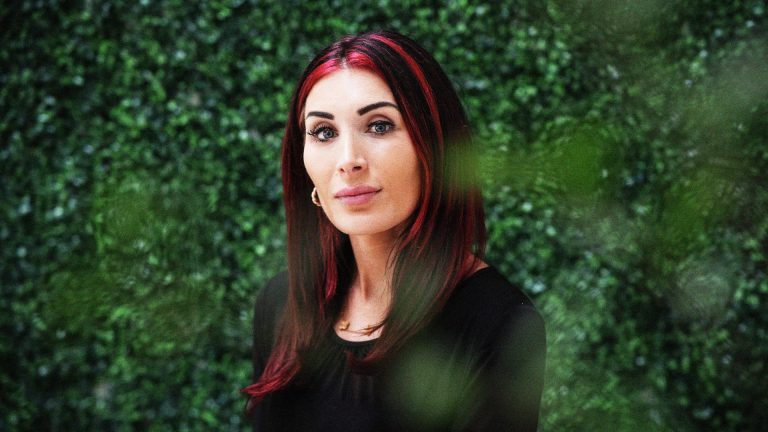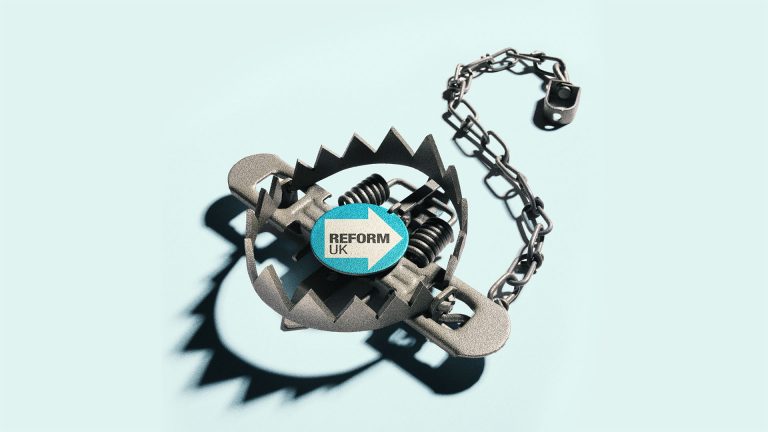Sometimes you’re reminded that years don’t always equal wisdom, and age isn’t always a proxy for knowledge. That’s how I felt this week on reading a new report from the Children’s Commissioner on young people’s views on assisted dying. It’s filled with nuance, compassion and a level of sophisticated understanding that legalising medically-assisted suicide would come with serious risks that we simply haven’t seen from MPs championing the assisted dying bill that is currently working its way through Parliament.
Ever since the Labour MP Kim Leadbeater announced last autumn that she would seek to legalise assisted dying through a private member’s bill with No 10’s tacit backing, I’ve watched with dismay as the parliamentary pro side quickly hardened into a “for us or against us” mentality.
The contrast with the views of the small panel of teenagers with additional needs regularly convened by the Children’s Commissioner could not be sharper. Unlike the bill’s MP backers, through their discussion they elegantly captured the fact that the assisted dying question is about striking a balance.
On the one hand, there are the benefits to those who are terminally ill and have an autonomous wish to end their own lives. But this must be weighed against the risks to those at risk of being coerced or even just lightly pressured into telling a doctor they want to be prescribed lethal drugs for the wrong reasons.
They recognised why some people might want to avail themselves of assisted dying. “In some cases it could relieve pain, suffering,” said one girl aged 16. But given the proposal is only to legalise assisted dying for those with six months left to live, they were concerned doctors could get things wrong. “If someone is told they have six months left to live and they actually have two years… I think it can influence them, it’s difficult to explain,” said one.
“I have been told by many doctors that I won’t be able to relearn to ski, to surf, but I am doing it… doctors might be wrong,” said another. The evidence suggests they are entirely right to be worried: how long someone has left to live is more of an educated guesstimate than an exact science.
In other jurisdictions where assisted dying has been legalised, some doctors have taken a very expansive view of what constitutes a terminal illness. In some cases, malnutrition resulting from eating disorders has been brought within the purview of assisted dying – even anorexia itself.
The result is a slippery slope, not as a result of the law being broadened in scope, but because it is capable of being interpreted far more widely than legislators envisage as a matter of subjective judgment. People are able to shop around for doctors who take a permissive view.
The other concern of sceptics like me is the fear that people might be pressured into assisted dying when it isn’t what they want. At the sharpest end, that might be women being abused by their partners, or their sons. Professor Jane Monckton Smith, one of the country’s leading experts on domestic abuse and coercive control, has highlighted research showing that abuse tends to escalate when victims get a life-limiting illness and has said that unless the bill takes this risk seriously it could potentially be the worst thing society has ever done to domestic abuse victims.
The panel recognised this: “there is no investigation in depth of people taking the [lethal] medication”, and “nothing there to protect” those who’ve been coerced, one 16-year-old girl said.
Again, I’m left marvelling that teenagers – albeit those with significant experience of navigating the system as a result of their additional needs – are able to so clearly see something that the bill’s parliamentary proponents apparently cannot.
These MPs have repeatedly claimed the bill will have the strongest safeguards of anywhere in the world, but the reality is these amount to tick-box exercises rather than in-depth investigations. Medics involved in signing off assisted dying will have to receive some training in coercive control, but case reviews by the Child Safeguarding Practice Panel show that even experienced social workers whose job it is to detect coercive control in family relationships quite often fail to spot it.
The idea that doctors will be able to spot it in a failsafe way is inconceivable. The bill originally envisaged the High Court acting as a further safeguard for assisted dying requests; the way this was drawn up was strongly criticised by experienced practitioners such as former head of the High Court Family Division Sir James Munby as a safeguard that falls “lamentably short” and “permits a secret process which can give us no confidence that it will enable the court to identify and prevent possible abuses”.
The response to this critique? Kim Leadbeater has watered down the bill further by taking out the judicial safeguard altogether, replacing the courts with a multidisciplinary panel of three that Munby quite rightly says risks being little more than a “rubber stamp” that will “not be able to properly exercise its functions”.
It has no investigatory powers, no ability to summon witnesses, and no obligation to hear from anyone apart from one doctor involved in the process. A former chief coroner of England and Wales Judge Thomas Teague has also warned that in ensuring that no assisted deaths would be investigated by the coroner, the bill further magnifies the risk of deception or undue influence because it removes that deterrent.
And this is before you consider the more subtle forms of pressure ill people might experience to opt for assisted dying that would never really be detectable, let alone in a failsafe way. One Canadian doctor – where assisted dying is legal – has described the reaction of a patient who had already had three doctors start conversations with her offering her an assisted death as an option.
Of course someone ill and vulnerable might start to feel this is what the medical system wants them to do in those circumstances. It might all be well-meaning: one 16-year-old on the youth panel said “when you see nurses and doctors going around, sometimes [they might] feel like ok, I need to release people from this burden.”
How do you protect people from those sort of value judgments being imposed on them by medical staff? “It could be about how society values their life… could there be pressure [to choose assisted dying] rather than fight for the cure?” another 16-year-old girl asked.
There is also no acknowledgement in the proposals that depression is a common initial reaction to a terminal diagnosis that can be treated; and there is nothing to suggest someone with depression could not have the capacity to choose to end their own life under the bill. Is there really any difference between this and the state facilitating suicide?
In recent months, I’ve spent a lot of time reading research and interviewing and listening to experts, including from countries where assisted dying is already legal. It has left me very clear: yes, it has the potential to benefit some people but the price is far too high. There will be some people – potentially many people, and particularly those who are vulnerable – who will always be wrongly coerced, pressured or even just lightly nudged into taking their own lives.
No one can put an exact figure on that – the government’s own impact assessment of the bill certainly doesn’t even try – but we shouldn’t need to, because just a small handful of state-sanctioned wrongful deaths should be enough to prompt a rethink by those who are proposing the bill.
Perhaps that’s why we’ve ended up where we are: with one side in Parliament implausibly asserting that their tick boxes will mean no one will wrongly be prescribed legal drugs, and the other trying to amend the bill in a way that certainly won’t eliminate abuses and harms that will be created by the bill, but that might reduce them. It’s difficult to concede that your moral drive for assisted dying could be far more ethically complicated than you first thought, and so you have to accuse the other side of scaremongering or using exaggerated concerns about safeguarding.
What this has produced is an utterly deficient parliamentary process. MPs are now looking set to pass a dangerous bill that will cause significant harm, without properly acknowledging the complexities being raised not just by their peers on the other side of the debate, but by frontline experts and by a group of teenagers with important experience of health and social care.
I really wish I could get MPs like Kim Leadbeater to listen properly to these young people and engage with their concerns. But I have a horrible feeling they would be dismissed as lightly and easily as the bill’s other critics.









